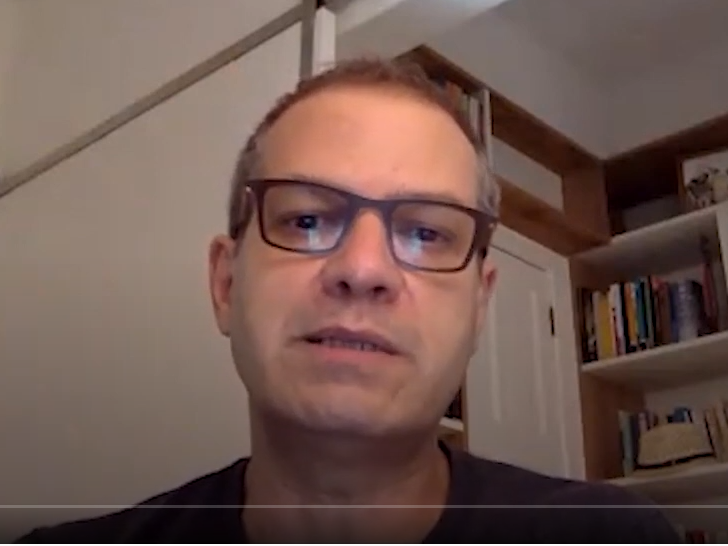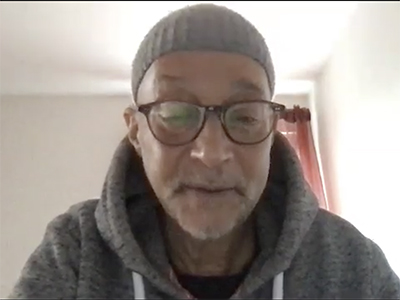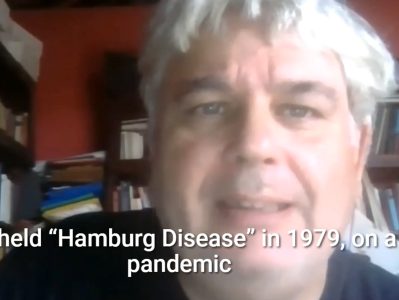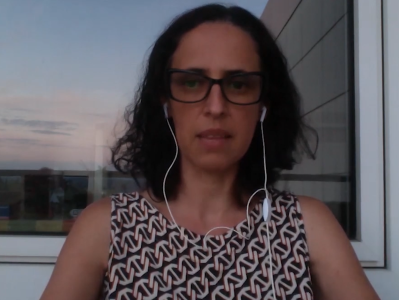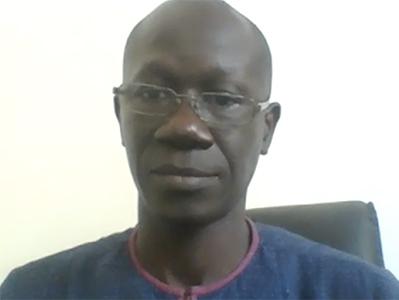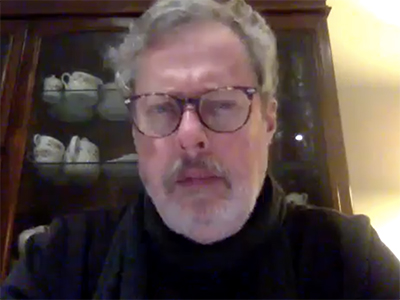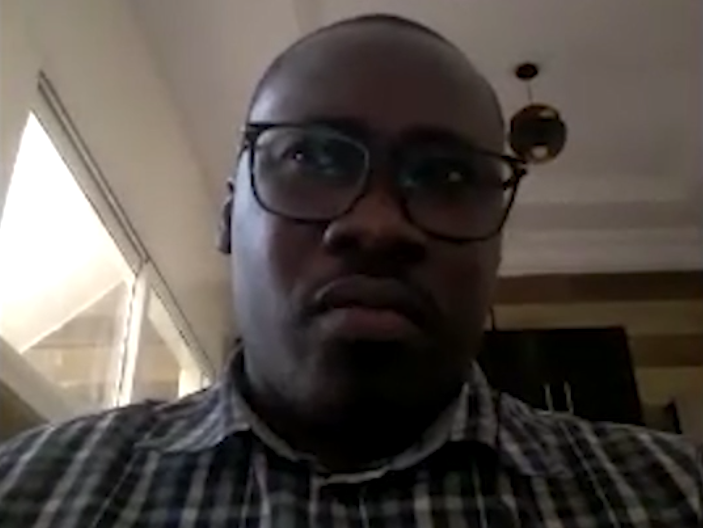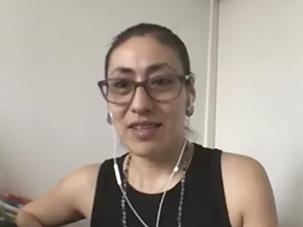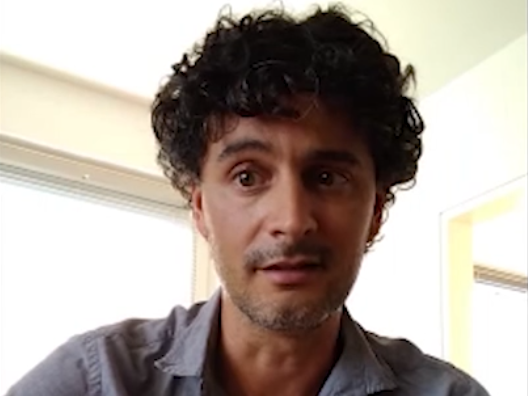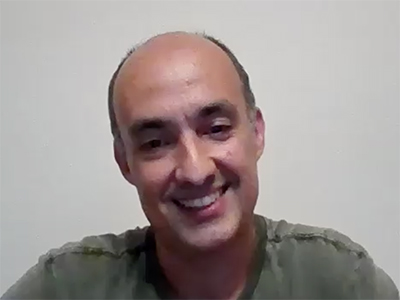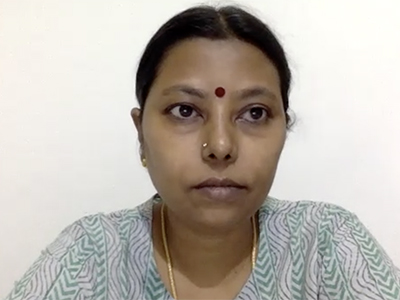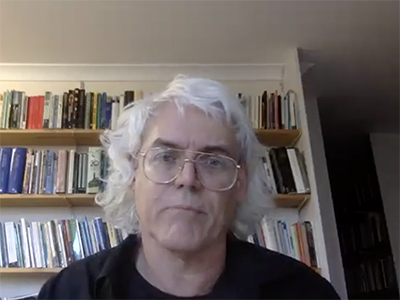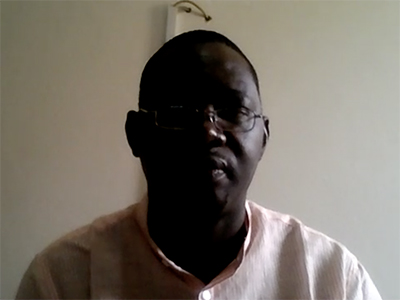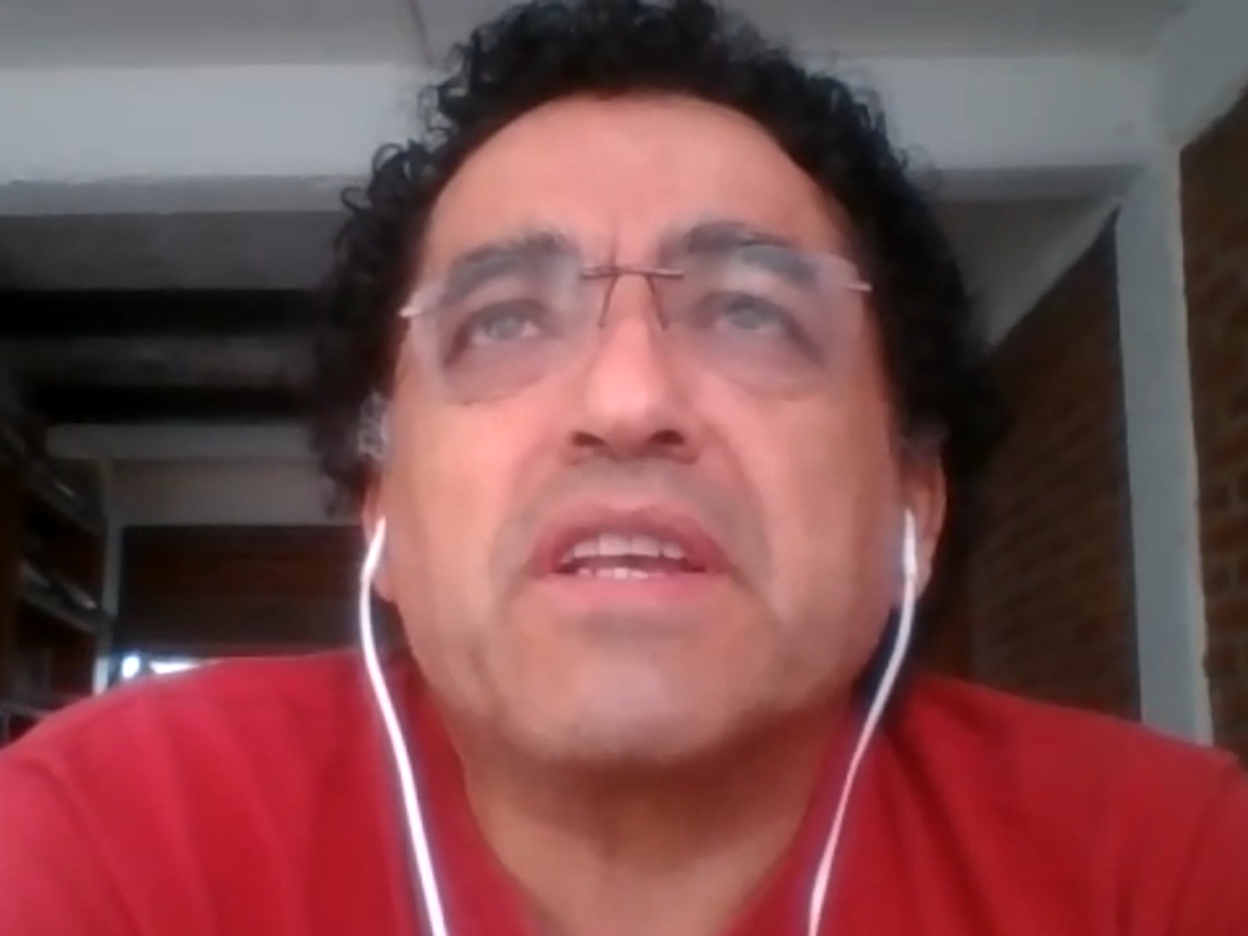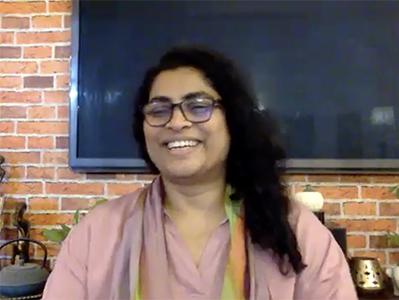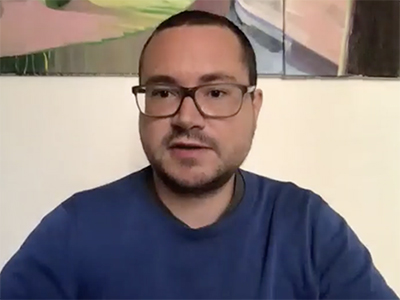Welcome to this year’s virtual forum on “Well-Being and Subjectivities across the Global South”. I’m Russ West-Pavlov, and together with my colleagues Gabi Alex, Susanne Goumegou and Sebastian Thies, we would like to formally open the digital proceedings with a few brief words about our scholarly interest in issues of wellbeing at the current fraught juncture of our contemporary moment.
This year’s International Research Forum is coordinated by the DAAD / BMBF Thematic Network ”Futures under Construction” and hosted by the Tübingen Interdisciplinary Centre of Global South Studies. The forum invites scholars and PhD students to participate in a dialogue on Well-Being, a concept that plays a crucial role in current debates about the future orientation of the human race.
Together with our colleagues from our partner institutions in Johannesburg, Niterói /Rio de Janeiro, Mexico City, Melbourne, New Delhi and Dakar, we agreed on this agenda at University of Tübingen’s 2019 Summer School on Global South Studies as it seems to be a perfect fit for an interdisciplinary, international South/North dialogue. We want to take a critical look at a notion of wellbeing as an overarching goal that on the one hand is extremely difficult to question and dismiss, as it is made up of a combination of two notions - well and being - that are intrinsically valuable, and on the other hand seems highly problematic as it does not seem to reflect the real existing conditions of deep precarity that characterize many of the social and cultural settings in the Global South.
Little did we know that the COVID Pandemic would change the face of the planet and impede our plans to gather in person in Tübingen. The Pandemic has put issues of Health on the forefront of public discourses in both North and South and stresses the importance to explore notions of well-being related to social distancing and health related social justice that were unforeseen by us when we started the planning. At the same time, it is clear that this crisis is not only a health crisis, it coincides with the worsening of the debt crisis and the economic imbalance that has been an issue in the Global South for decades. It will have overwhelming repercussions on public health and social protection systems and the deeper and more lasting dismantling of the educational and science sector. These issues are compounded, as we speak, by a global explosion of protest around chronic issues of persisting discrimination and racist violence, and of course by ongoing climate crisis which has only temporarily been obscured by the COVID-19 pandemic. Each of these acute global issues intersects with the others are the heartlands of contemporary wellbeing or its opposite, illbeing.
While well-being is a key concept in the WHO understanding of health – defined as “a state of complete physical, mental and social well-being and not merely the absence of disease or infirmity” (1946) and we try to address these issues with a strong participation by experts of medical anthropology and public health, the relevance of the term for development issues goes well beyond health and includes basically every area of human life. The influential OECD quality of life index encompasses, for example, health, labor, housing, income, education, safety, social support network, civic engagement, and work life balance, as well as the subjective notion of life satisfaction. In this sense, we are open to contributions from a wide range of humanities, social sciences, and life sciences.
It is highly debatable if this top down approach which ultimately intends to provide guidance for governance policies can claim any universal validity. From the South’s point of view, these technocratic approaches are problematic. This applies especially to the claim that an incommensurable value such as well-being can be empirically measurable when being broken down and segmented on a global scale of comparison, but also in particular to the fact that these concepts of well-being contain semantically a notion of Western individual subjectivity that is held up to Southern societies as a target that they have not reached yet or have only implemented deficiently. Global asymmetries lead to the fact that the term well-being particularly illustrates the inadequacies of modern development promises. This makes the term a hot spot of the South’s theory construction.
The particular appeal of this concept of well-being however is that it cannot be reduced to the discourses of global governance, as we all have notions of what would make us happy or feel good, what might be good or desirable in life, how we should act to attain this goal, or how life should be in order to allow humanity to prosper on this planet. Under the current conditions, it’s possible that we are gradually developing a novel global consciousness of the things that menace well-being – variously scaled at the personal, communal or planetary. Many have to live in conditions of precariousness. Under these conditions, navigational skills for overcoming the hardships and contingencies of life are vital to survival.
We are confronted, on a daily basis, with images of ill-being, of unrest, violence, poverty, racial discrimination and social exclusion - all culminating in human suffering. Those images chosen by hegemonic regimes of medial representation rule the public sphere. Other apparently less spectacular images remain hidden from the public gaze while human suffering continues unabated.
There is an undeniably strong appeal to people both in the North and in the South in the idea that wellbeing can be purchased and consumed. But such notions convert our lives in goods to be consumed. And increasingly, however, the myth of endless growth supposedly conferred by globalized capitalism loses its sheen as the climate crisis, the Covid Pandemic and global recession take a toll on the planetary consciousness.
In recent decades, thinkers from the South have proposed looking at autochthonous or indigenous concepts such as the good life or buen-vivir or Ubuntu as they promise alternative understandings more apt to accomplish well-being in terms of communal or ecological sustainability. Such concepts are intertwined with forms of communal participation, technologies of indigenous agriculture, conservation, or architecture, and practices of health care or economics, that concretely generate quality of life. Many of the traditions have survived in the interstices of colonial modernization and development and are now being regarded with renewed interest as climate change, for instance, threatens material livelihoods on a massive scale around the globe.
As Global South studies take a critical position on the hegemonic geopolitics of knowledge, our main concern is to understand the social and discursive production of well-being in the complex global fabric in which societies in the Southern hemisphere are embedded. We also want to shed light on the global presence of marginalisation and subalternity (i.e. the “South” in the “North”). More broadly, we would like to focus on the following questions:
What various images and imaginations of wellbeing can be found around the globe and what differentiates or conversely unites them?
How are they related to the cultural, social and political context out of which they arise? How do we confront the fact that often stereotypical notions of wellbeing and illbeing are embedded in an enduring colonial mindset? How can we as a group of global scholars contribute to critical and transformative interventions in current debates about the decolonization of such images?
Which discourses and models of wellbeing circulate in and between local, regional and international contexts? How do they travel and who transmits or curates them?
Which practices of applied and embodied wellbeing are intertwined with the respective imaginaries and discourses in specific contexts? How do they relate to and intervene in multiple experiences of illbeing - violence, poverty, neglect and precarity? Which forms of subjectivity - individual, communal, transpecies, transgenerational - do they give rise to or enable? What models of agency can be recognized in these incarnations of subject- or personhood?
Please join us as we address these questions in this year’s virtual forum, digitally debating issues that concern us all in these turbulent times.

